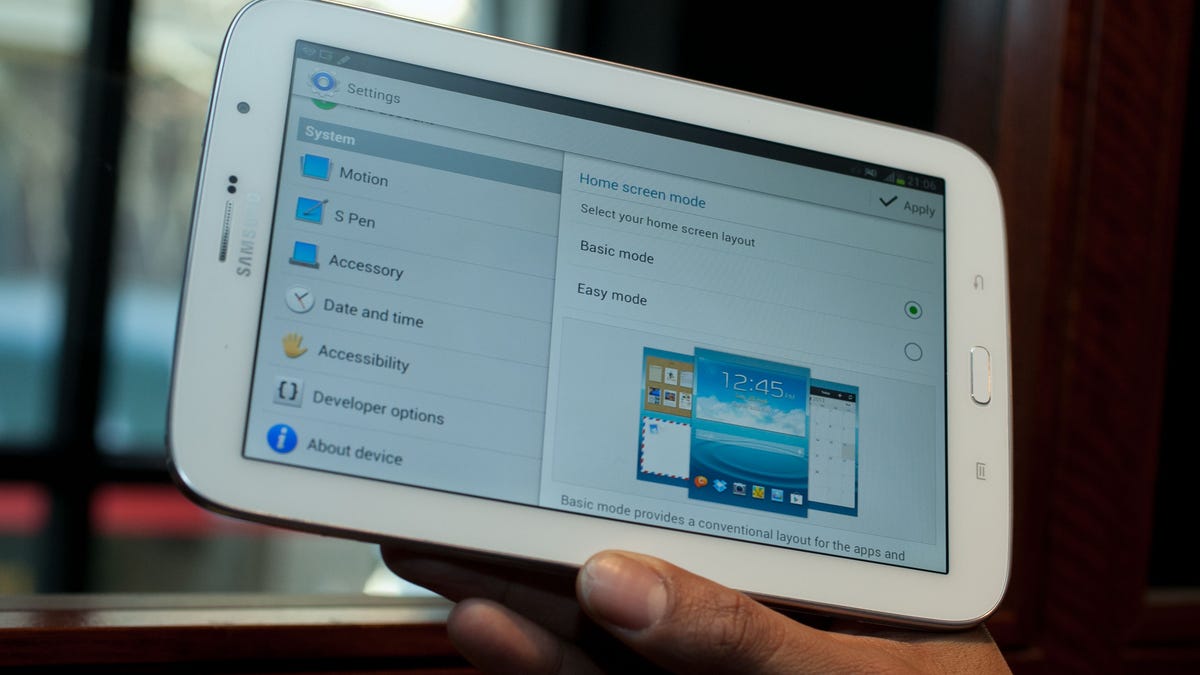Samsung says it plans to double its tablet sales this year
But the company warned that smartphone sales growth would likely slow along with the broader market.

BARCELONA, Spain--After a rocky start, Samsung Electronics is finally seeing the light when it comes to the tablet business.
The Korean consumer electronics giant, already the world's largest handset manufacturer, plans to double its tablet sales from a year ago, according to Y.H. Lee, executive vice president of the company's mobile unit.
That would peg its sales to about 40 million units in 2013, although Samsung's hasn't officially disclosed its full-year 2012 unit sales yet.
"We expect to be very aggressive," Lee said in an interview with CNET.
The bullish expectation further underscores the growing dominance and influence of Samsung in the mobile devices business. Already the leader in cellphones, the company is targeting the tablet crown with an ambitious lineup of products.
Samsung unveiled the
The products that Samsung now offers is a far cry from its original
But fast-forward more than two years since the debut of the Tab, and Samsung is holding its own in the tablet market. The company more than doubled its market share for tablets in the fourth quarter, improving to 15.1 percent, according to IDC. While Apple maintained a strong lead, its market share trajectory has been veering down.
Samsung's tablets are mentioned in the same breath as the
Smartphone slowdown
Samsung is hoping the growth in tablets will keep the mobile engine pumping, because the company isn't as bullish about the pace of growth for smartphones.
"We don't know if growth will grow as fast as before," she said.
That's consistent with the broader belief that the smartphone industry will see a slowdown after years of tremendous growth.
At the same time, Samsung's competitors have only accelerated the pace of innovation. HTC just debuted its all-metal
Samsung fans, of course, are on hold as they await the debut of the next Galaxy S smartphone. The company sent out invitations for the launch event of the Galaxy S4 yesterday.
While the same pace of growth may be tougher for Samsung, the company still plans to outperform the broader market growth for the smartphone industry, Lee said. As an example of the high expectations the company puts on itself, she said that Samsung merely hitting the market benchmark for growth would be a big disappointment.
It's easy to see why Samsung is setting such lofty goals. The Galaxy S lineup has proven to be a world-beater at the same level of appeal as Apple's iPhone franchise, and the Galaxy S4 launch is starting to garner the same kind of attention. At the same time, Samsung has a much wider portfolio of products that goes down to the low end.
Samsung also sees further growth from its push into the business arena. The company has recently augmented its massive marketing campaign with a focus on addressing its phones' use in the office. The company recently announced a series of new business-friendly software features called Knox.
Given its history of successfully assaulting the iPhone in the high-end smartphone segment, BlackBerry should be keeping an eye on Samsung's latest ambition.

